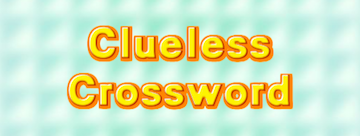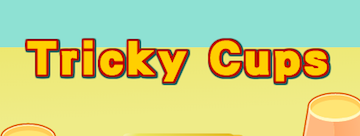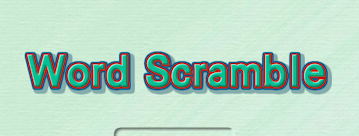
There’s a lot of talk about the challenges and frustrations that people with ADHD face. Fortunately, many of the clients I work with already focus on their differences rather than being caught up in the label or stigma of mainstream society.
But let’s face it, there are a lot of people who still believe that ADHD is a horrible, life-threatening condition that creates challenges and holds people back.
I’ve had enough of that thinking…
ADHD is a true condition, but it’s one that we understand and can support. There is no level of success that has not been attained by someone living with ADHD.
People With ADHD Have It Made
Being the odd one out can make life feel difficult, and often times incredibly isolating. And maybe that’s an incredible understatement. Differences can destroy self-esteem, encourage ridicule, and open the door for excuses.
It’s unfair to be burdened with such a great responsibility.
Speaking from personal experience, as someone on the outside looking in, I have learned that no matter who you are or what challenges you face – life is difficult. Whereas ADHD has a negative stereotype by many people, it is also incredibly well researched and understood better than most conditions.
When I was younger, ADHD wasn’t very well known and yet it was also reserved for the student who was always getting in trouble. It was a designation given to the student who was the class clown or who was always getting in trouble.
But today we know differently…
Today there are services and systems specifically designed for the individual living with ADHD. No matter what area of life you struggle with there are support groups, advocates, and strategies one can plug into.
Never before have I seen so many opportunities geared towards the individual who is different… Towards the individual who is living with (and struggling with) ADHD.
-
ADHD And Time Management
-
ADHD And Organization Skills
-
ADHD And Working Memory
-
ADHD And Study Skills
-
And This Is Just The Beginning…
Why Then Is There Still So Much Struggle?
If this article has touched a nerve, then it has served it’s purpose. I am not here to suggest that life is easy for someone with ADHD. In fact, I understand how difficult and challenging life can be. But I also know that if you want to find success in life… If you want to achieve different results… You must be willing to try new things.
Most of the people in the world (with or without ADHD) who are successful, have invested time and energy into self development and personal growth. They have identified their strengths and outsourced their struggles.
Just as someone with ADHD can focus on their struggles and challenges (and how unfair life is), the person without ADHD can take for granted their abilities and therefore never reaching their full potential.
The world is not fair. Life is not fair. Being different requires great responsibility and dedication to always learning more.
I firmly believe that someone with ADHD can be just as successful as anyone else. Their struggle might be different… The road to success might be more difficult… But at the end of the day, you already know that you must find the right path to accomplishing your goals!
The person with ADHD likely knows they are different and must find a different path to achieve success. That path can be either painful and destructive or it can be a path that most don’t travel…
Which path will you follow in your life?
- Will you blame the world around you?
- Will you accept responsibility?
- Will you allow others to set the stage?
- Or will you walk your own path?
Is It ADHD, The World Around You, Or Just A Way Of Life?
I know a lot of people who struggle in life. They wonder if it is their fault, if it is the world around them, or just the makeup of who they are…
The successful people I know (even those living with undiagnosed ADHD) don’t make excuses for their challenges. They always seek solutions to their challenges and are willing to go it alone. Or more realistically, they seek out like-minded individuals who understand their way of life.
Click Here For Article References:Dr. Stern is a behavior specialist and Internationally recognized ADHD expert. He is the author of Help Your Child [With ADHD] Succeed, a “How to” blueprint for parents in search of a strength based approach to helping their children succeed. Dr. Stern offers in-home, on demand virtual coaching and consulting.















I’ve studied this at UCLA for well over a decade. Here’s the thing. Our understanding of ADHD, and other dimensionally defined disorders (brain is out of tune …not broken) has been greatly limited by our lack of understanding of brain-states. A very significant portion of our brain function and experience is attributable to fluid changes in emergent neural architectures (i.e., brain-states) that alter how our brains work and what they are capable. This is an old trick for biology. Biological systems cycle through different states to accomplish different goals. ADHD reflects ‘a brain’ that for a myriad of different reasons across individuals has poor access to the state that allows us to be good at complex goal directed behaviors (i.e., be a good task-master). This poor access can be caused by an almost infinite variety of factors, and for most without overt physical damage (a broken brain), it’s a functional systems-level issue that should be amenable to training. The other critical thing to consider is that individual’s brain-state dynamics are as variable as are personalities, and there have always been individuals that did not ’emphasize’ a task oriented state. There are even genes potentially linked to this temperament. Moreover, there are lots of good practical reasons why being in ultra task-master mode is not always a good thing. For instance, people who end up with the ADHD diagnosis score much higher than normal on measures of self-transcendence. I’m trying to make the point that: 1) in most cases of ADHD we’re not dealing with a ‘broken brain’ (in the traditional sense)- perhaps, out of tune or poorly tuned to current life-demands, and 2) spending less time in one-brain state invariable means spending more time in others …. and we humans have evolved a vast repertoire of states, all of which, bear crucial and valuable abilities and experiences for our species. In short, a believe that a big part of ‘the cure’ for ADHD, is for our species and society to become better at recognizing, developing, and integrating a broader swath our neural diversity.
I’ll never know if it’s really ADH or other things that have happened to me. I definitely have ms that has terribly affected my short term memory. I am now 59 years young and in the past I have smoked marijuana chronically. I was OK in my thirties as I became an RN. I’ve also bee a musician for about 45 years. I can remember and play anything that I used to play, but learning and remembering new tunes is nearly impossible. HELP! please.
Jay….Rock Nurse
Excellent blog! The key is to identify these problems as early as possible and educate parents/guardians/teachers as to how approach, teach and train an ADHD child. (Frankly this is true of any condition). In a recent public school project we used the qEEG, along with more conventional data, to fine tune diagnosis. The result: We found many children with ADHD type symptoms not getting any treatment at all because parents/guardians were uninformed, under stress, didn’t believe in the diagnosis, couldn’t afford treatment or were in dispute with each other about treatment or lack thereof. The key is earlier and more accurate diagnosis and treatment using a combination of the most appropriate tools, be that medication, brain training, behavioral training, etc. etc.